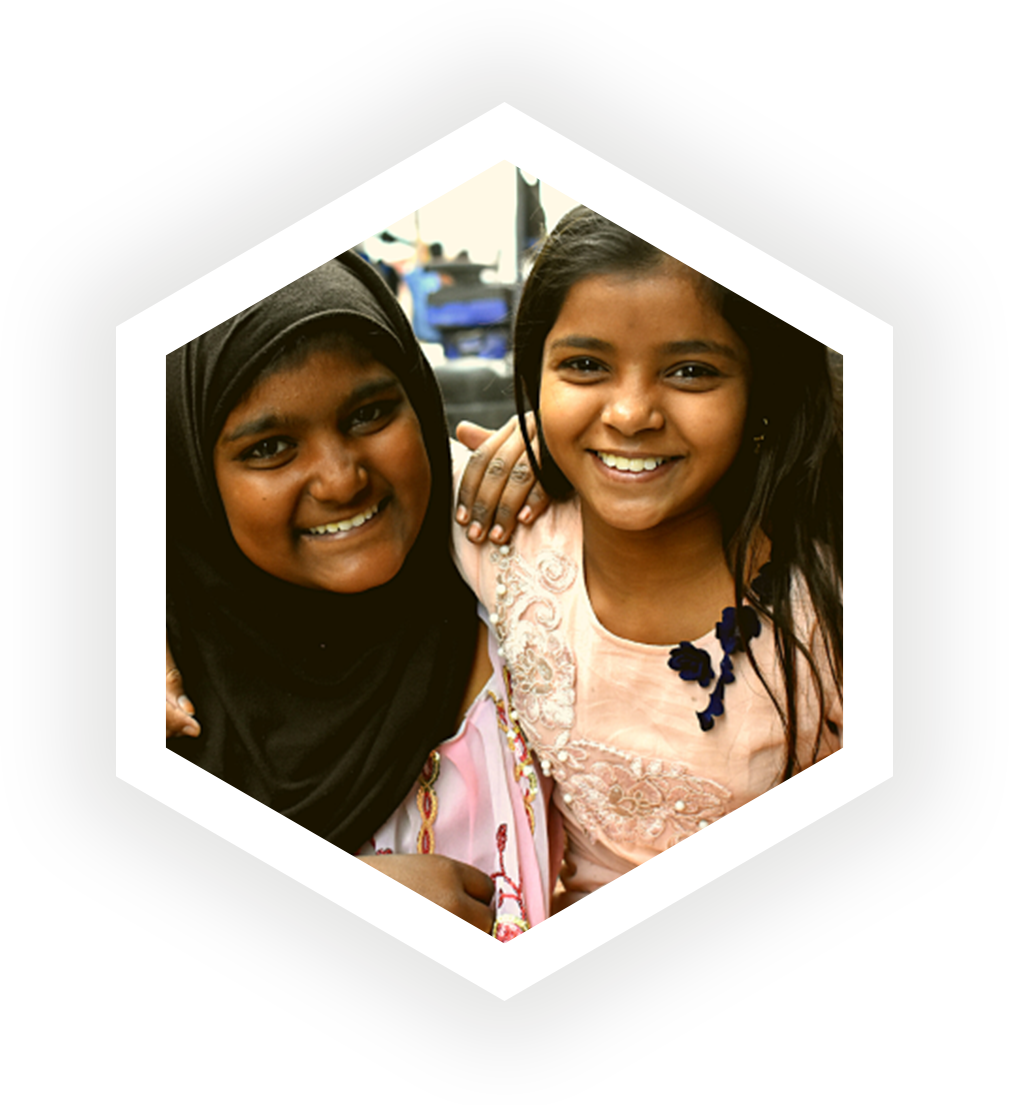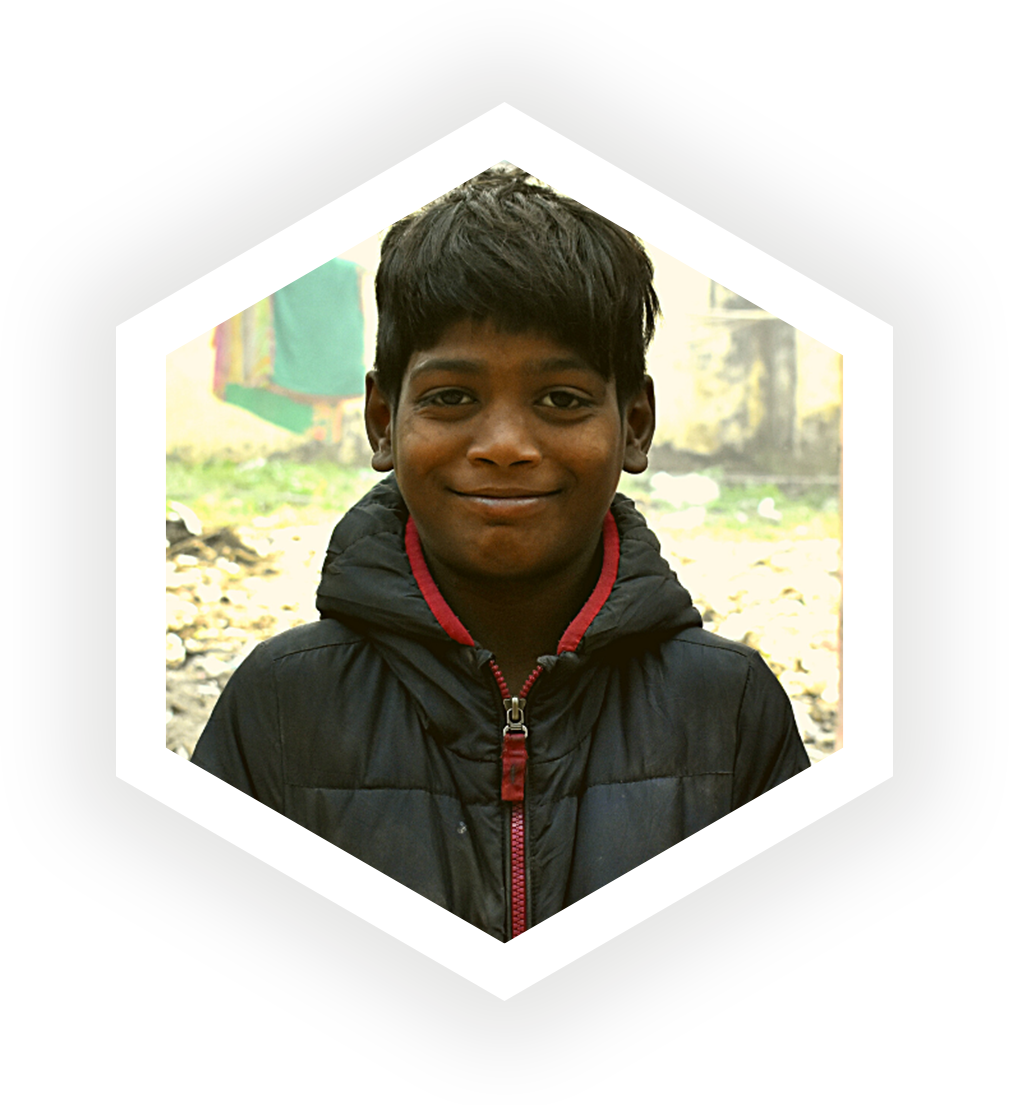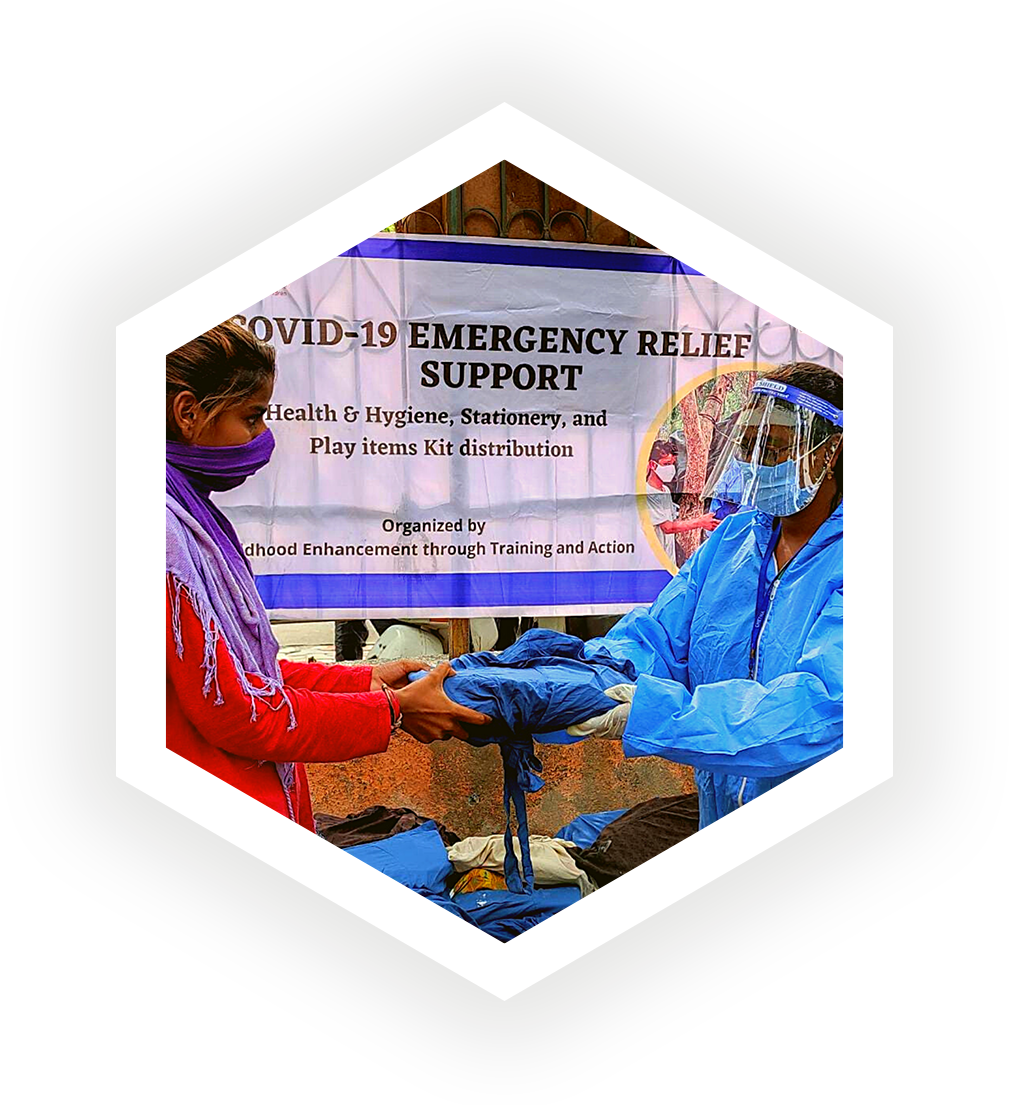The challenges
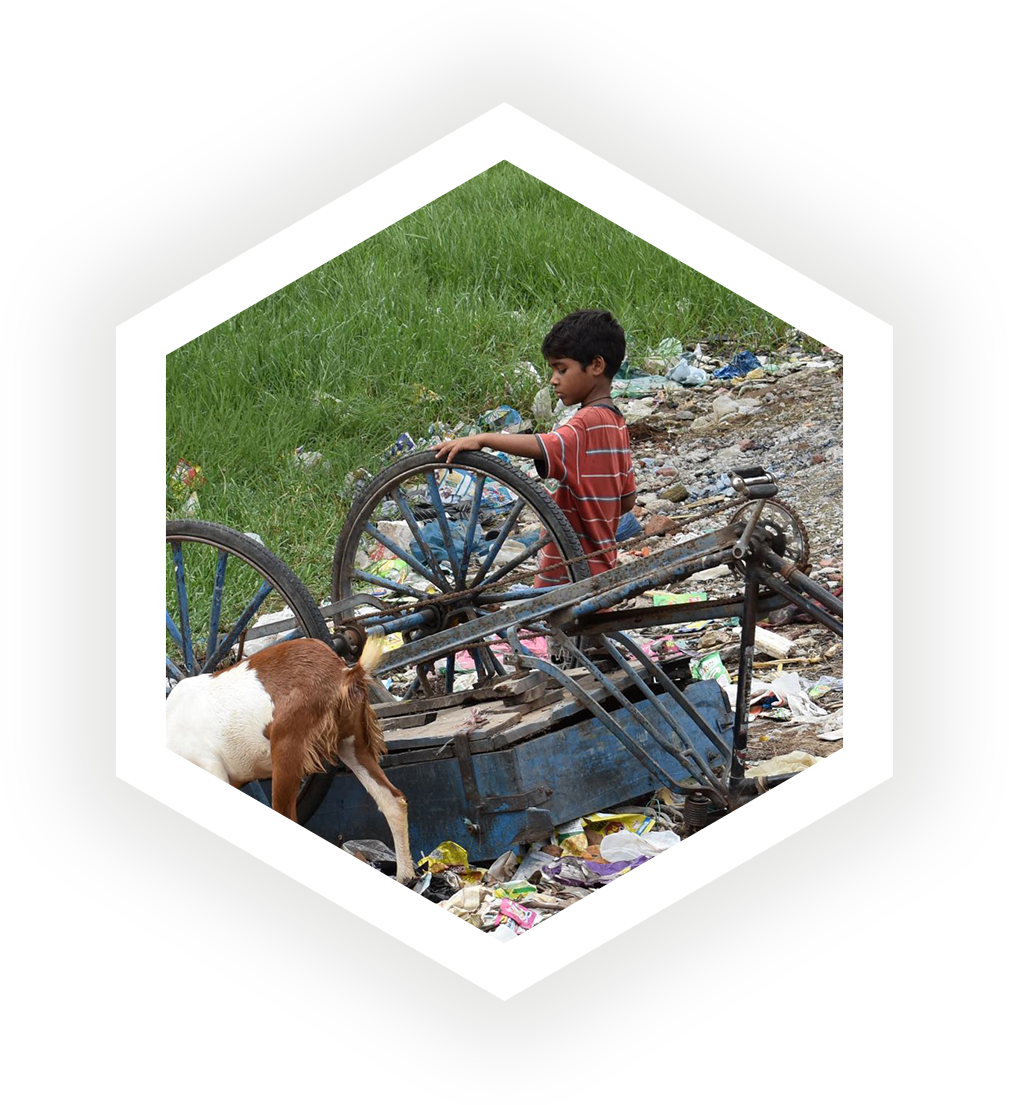
Poverty within urban slums
India has seen rapid economic growth and urbanisation in recent years, with the ongoing lack of job opportunities in rural areas and falling income from agriculture forcing people from these regions to seek out work and a better life in the cities. However, once in the city, many end up living in crowded slums earning a wage through informal and unregulated work that is often unable to meet their families’ needs.
Read moreNot all slums are recognised by the Indian government, which means that residents in these settlements are not entitled to basic and essential services such as running water, electricity or public transportation. Children often live alongside their families in a small single room, sheltering under tarpaulins, without access to running water or a toilet. Residents are forced to either pay to use community facilities which are rarely maintained or are left with no other choice but to go the toilet outside, sometimes far from home. This puts the community at risk of disease and women and girls at risk of harassment.
The high levels of poverty within urban slums means that parents are often unable to provide for their families, leaving them with very few options to survive. As a result, many children run away and children of parents who are unable to provide for their families are forced onto the streets in search of work, scavenging in rubbish dumps to find scraps to sell or begging on the streets. The lack of educational facilities, high levels of poverty and lack of knowledge and information on the education system within many slum districts means that children are also often unable to attend school and, as a result, have less chance of improving their situations and finding new opportunities. While they are out of school, children are at greater risk of abuse and being forced into child labour to help financially support their families.
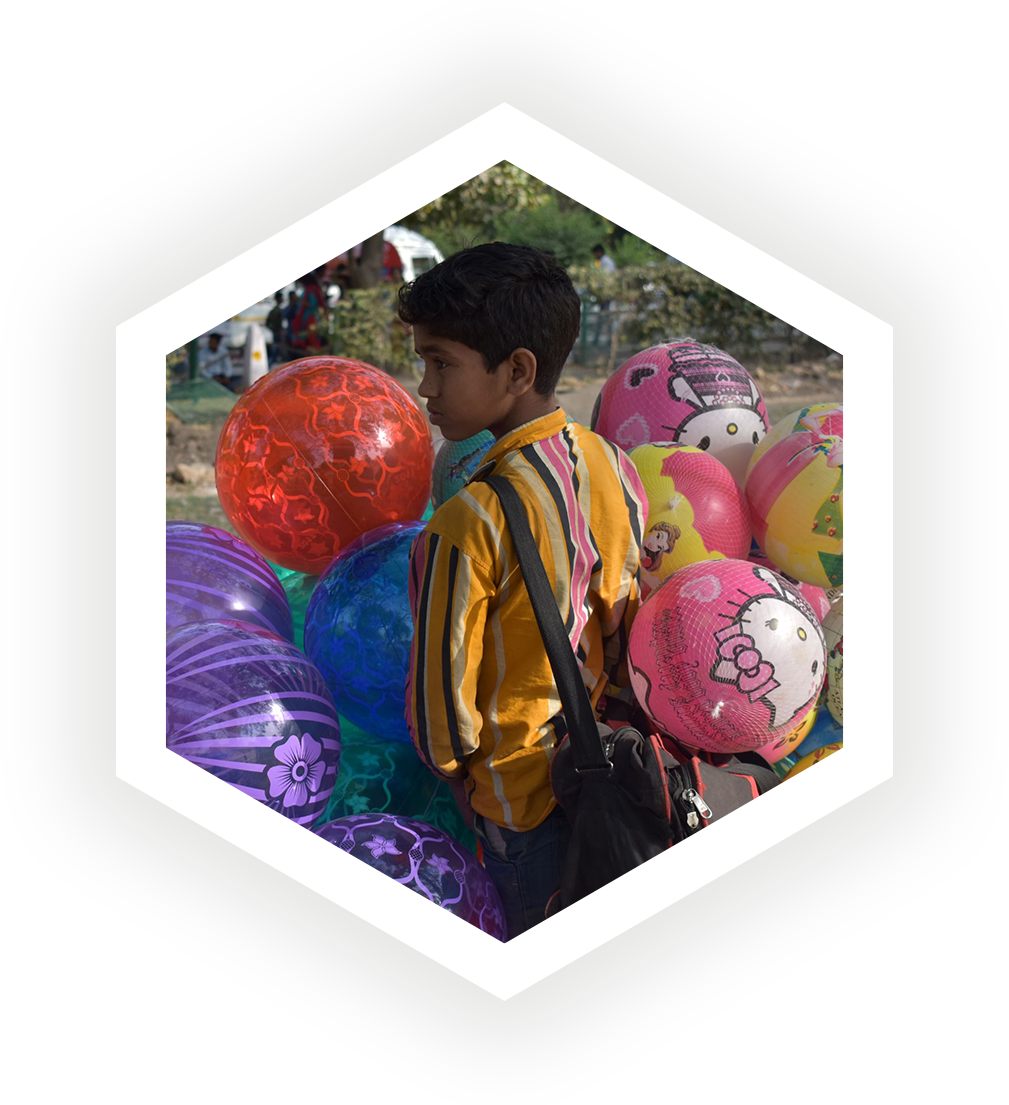
Child labour
A report published by the UN in 2021 highlighted that for the first time in twenty years, progress to end child labour had stalled, with India bearing the brunt of the child labour crisis. The COVID-19 pandemic has further increased pressure on children to enter the work force, with many families losing their jobs and witnessing their incomes plummet. Many children have been forced to enter manual or unskilled labour to supplement family income, working under poor conditions, where they are frequently exposed to major risks and hazards.
Read moreMany children working in illegal factory units are pushed to work in cramped, dingy, and unsanitary spaces for long hours - often with no safe exits to deal with emergencies such as fires. Here, they are exposed to physical and mental trauma. Child labour does not only lead to a loss of childhood and education; as many children work in difficult and often dangerous environments, their overall nutrition and health also suffer which leaves them vulnerable to a wide range of illnesses.
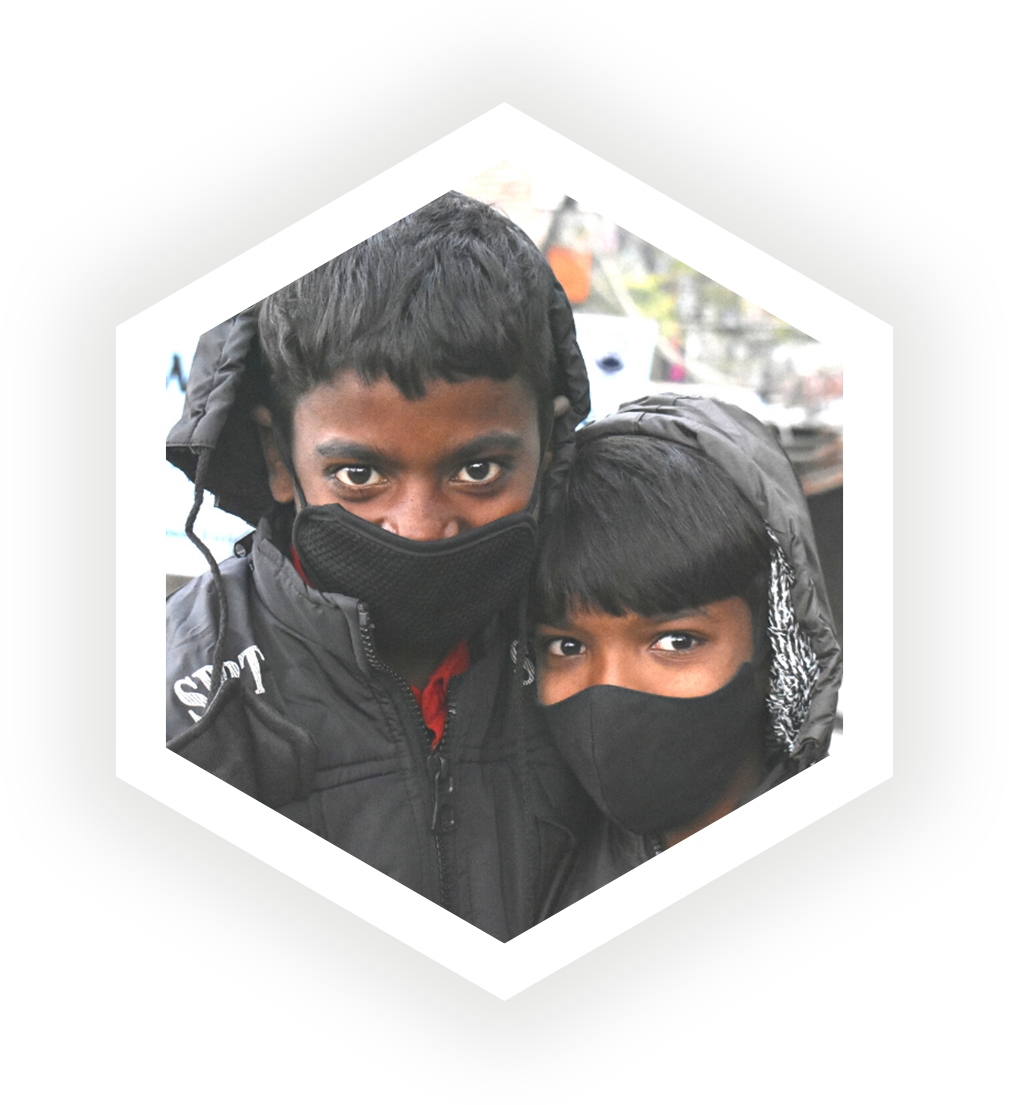
Discrimination and Stigma
In India, public perceptions of street children are often very negative and children on the streets often experience high levels of stigma and discrimination. This is particularly the case after children reach puberty when boys are often regarded as delinquent and girls viewed as shameful. The stigma attached to street living means that children on the streets are also prey to increased levels of violence from adults who view them as a nuisance.
Read moreThe complex challenges associated with the COVID-19 pandemic have fallen hard on children who live and work on the streets, with many facing further discrimination at this time. During the initial outbreak of the pandemic, many street families were unable to access the government food distribution efforts or health facilities as they did not have official legal documentation. In addition, some children described how they were discriminated against during the food distribution drives because of their appearance and were asked to stand at the back of the queue as people were afraid they would contract the virus from them.
Another huge challenge street children faced at this time was linked to the rules and restrictions on movement and being out in public spaces. When lockdowns were enforced with criminal sanctions, those living on the streets with nowhere to shelter were at high risk of prosecution and experienced further discrimination from the authorities.
